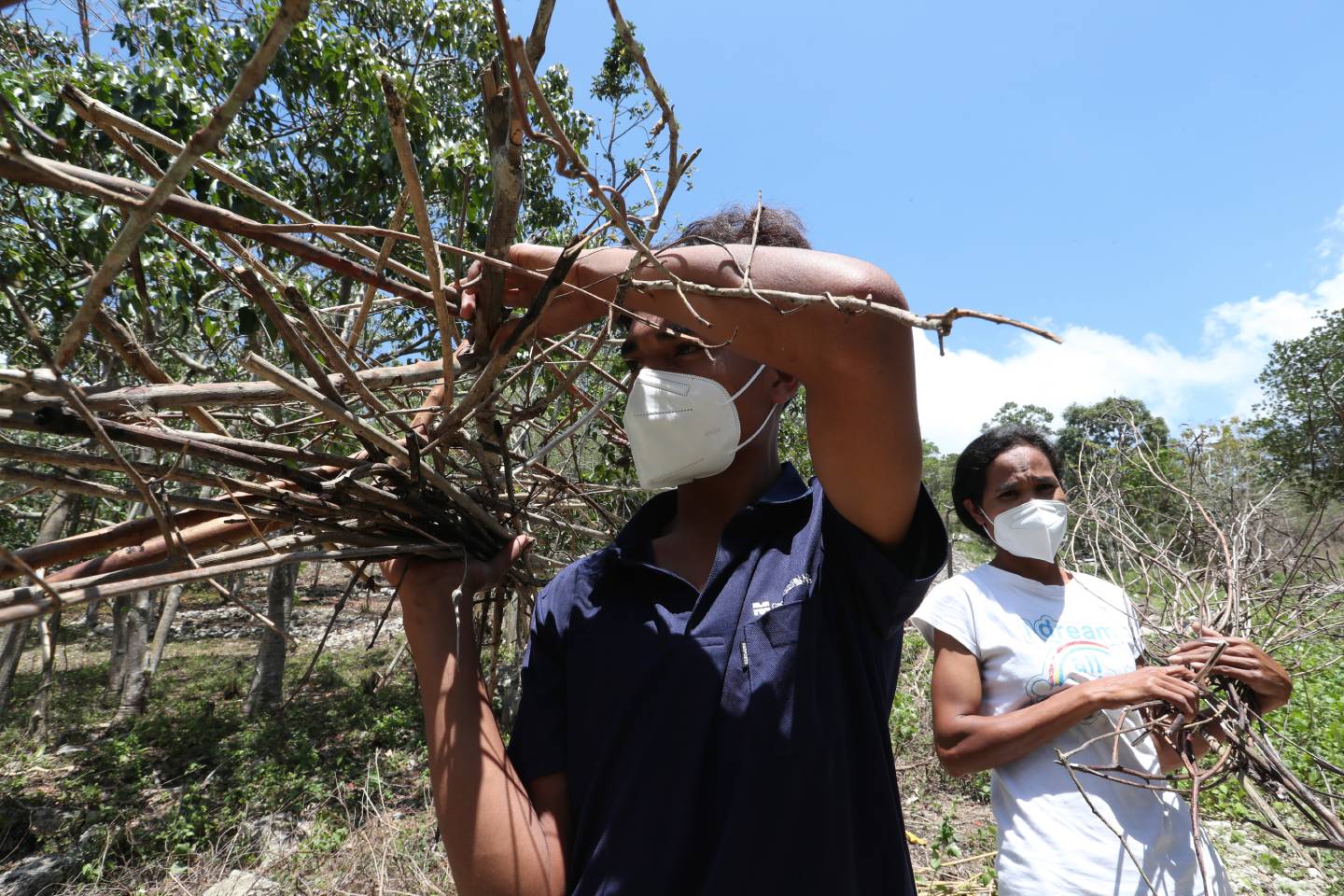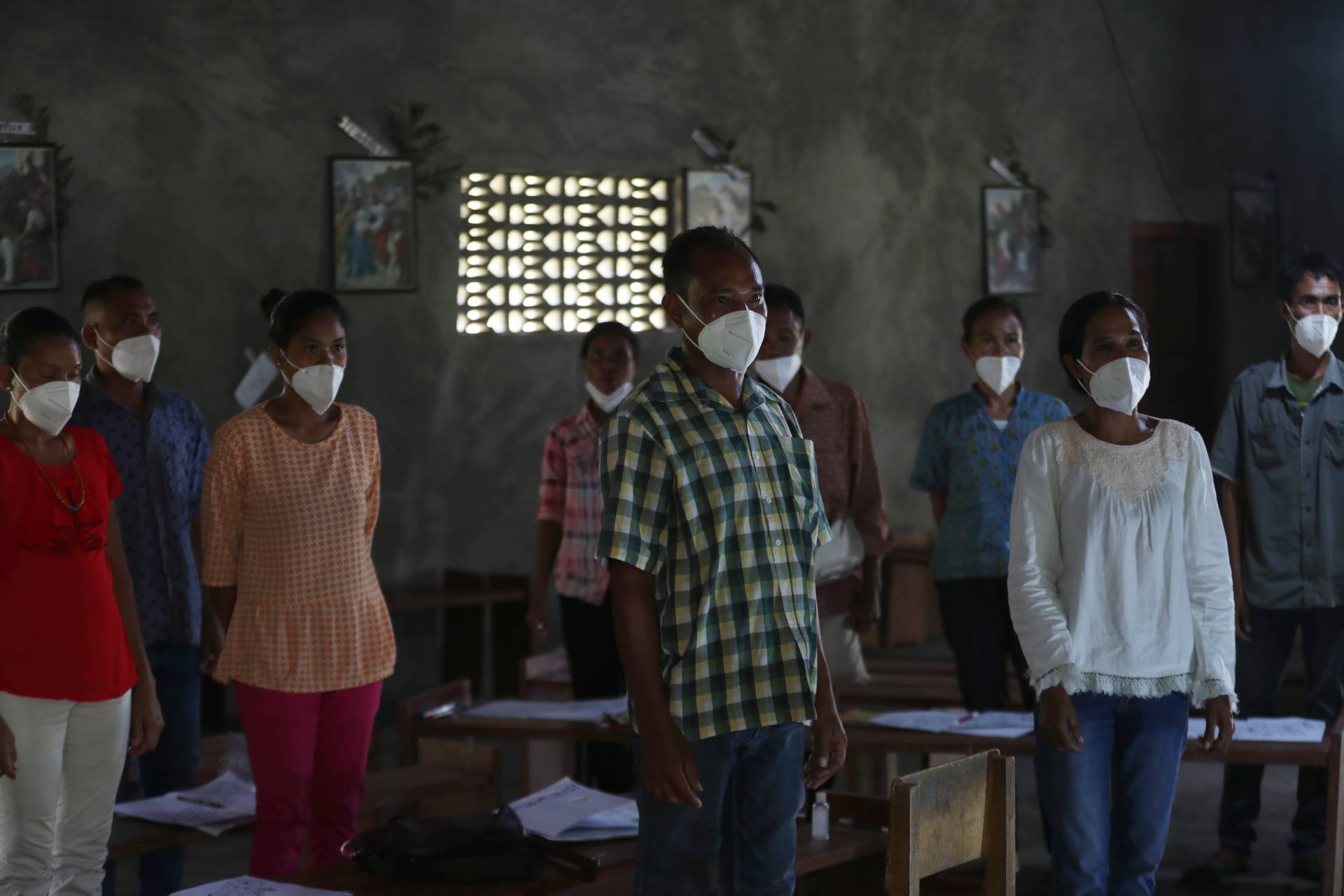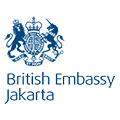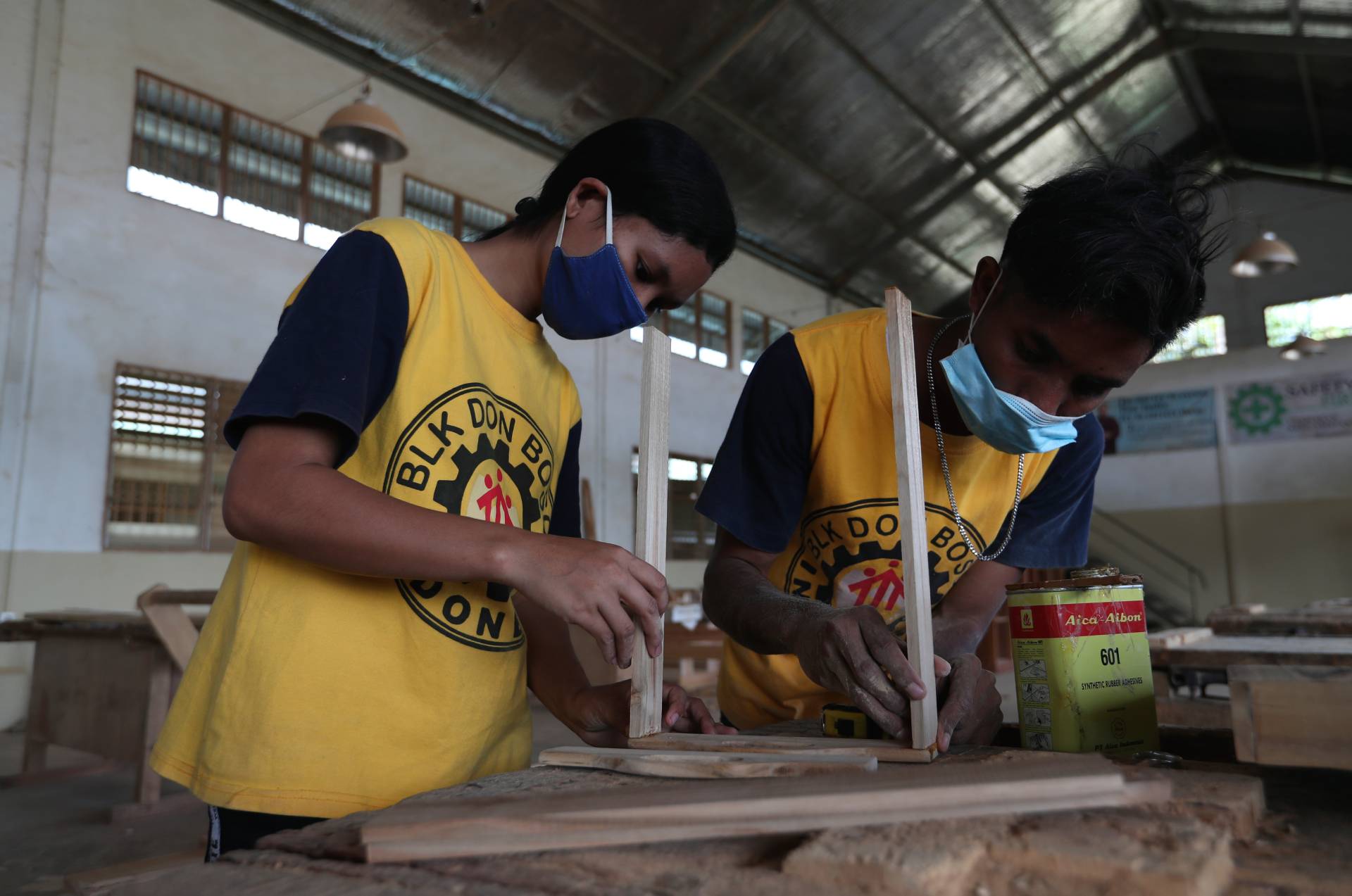Integrating the principles of gender equality and social inclusion in various development sectors is mandated in the Sustainable Development Goals. Indonesia provides similar legal protection through its Presidential Instruction No 9 of 2000 on mainstreaming gender in national scale development – including in the renewable energy sector.
The Indonesian-United Kingdom low carbon energy programme, MENTARI, works on the four pillars of policy, brokerage, collaboration and networking, and demonstration projects with gender and inclusion underpinning each of these areas. The goal is for women and men to have equal opportunities to benefit from and work in the industry and learn the skills they need to develop and maintain off-grid systems.
Gena Lysistrata, MENTARI’s gender and inclusion manager, shared these key aspects of the programme’s renewable energy projects at a webinar on 24 November 2021, entitled ‘Building synergy for the development of renewable energy skills in Indonesia – opportunities through international cooperation.’ This joint MENTARI and RESD-SECO event on the Zoom platform was part of the Indonesia EBTKE ConEx 2021.
Gena reported that MENTARI is actively supporting Indonesia’s energy transition towards low-emission, environmentally-friendly energy and technology and efforts to achieve the net-zero emission target. For example, the programme collaborates with local research institutions, such as the Don Bosco training centre in Sumba to train young people in renewable energy technology.
Other speakers taking part in the event included: Prahoro Nurtjahyo, head of the human resources development centre, Ministry of Energy and Mineral Resources; Martin Stottele from RESD-SECO; Kitty Garden from NZMATES; Erdila Indriani from Akamigas Polytechnic, Central Java; and Ephrem Santos from Don Bosco training centre.
In his contribution, Prahoro Nurtjahyo made the point that, “Energy transition towards net zero-emission means we must identify appropriate energy resources, infrastructure, and technology and ensure we have the funding at each project stage. Most important is the availability of skilled and qualified human resources at every stage of the energy project.”
He reported that President Joko Widodo had designated human resource development as Indonesia’s number one development program. Students’ mastery of science skills and technology is a major concern. Government is determined to address this issue and welcomes international cooperation in drawing up a strategic plan and deciding on the policy direction needed to strengthen human resource development. This is essential in developing the new renewable energy sector and achieving the net-zero emission target and will also provide a reference for our international partners.
Working with the Don Bosco training center, MENTARI held a consultative workshop on mainstreaming gender equality and inclusiveness. Participants included the young people selected for scholarships who were learning to set up, maintain and manage solar photovoltaic power plants with a view to working on the Mata Redi village installation once it is completed.
MENTARI held a similar workshop on gender equality awareness for partner companies and project developers. However, this is an ongoing dialogue between MENTARI and the decision-makers in these companies on how to mainstream gender and inclusion in any activities and projects they implement.

Why are gender and inclusion vital in developing human resources and economic opportunities throughout Indonesia?
The electricity supply business plan for 2019-2028, drawn up by the state electricity company, PLN, projects that the renewable energy sector will generate 70,000 new jobs in Indonesia. According to one study, eastern Indonesia will experience a 56 per cent growth in jobs related to solar energy system operations and management. The economic and social opportunities this scenario offers need to be available equally to men and women in local communities across the country, including in previously disadvantaged or unelectrified areas.
However, MENTARI has encountered challenges in implementing gender mainstreaming in its renewable energy projects. The concepts of gender and inclusion are not always well understood and often do not feature in companies’ standard operational procedures. In addition, cultural and social values and perceptions can limit women’s participation in the sector in terms of developing expertise or benefitting from the economic potential of reliable electricity service. Furthermore, young people need access to the further education they need to take on the new positions opening up in the renewable energy sector.








